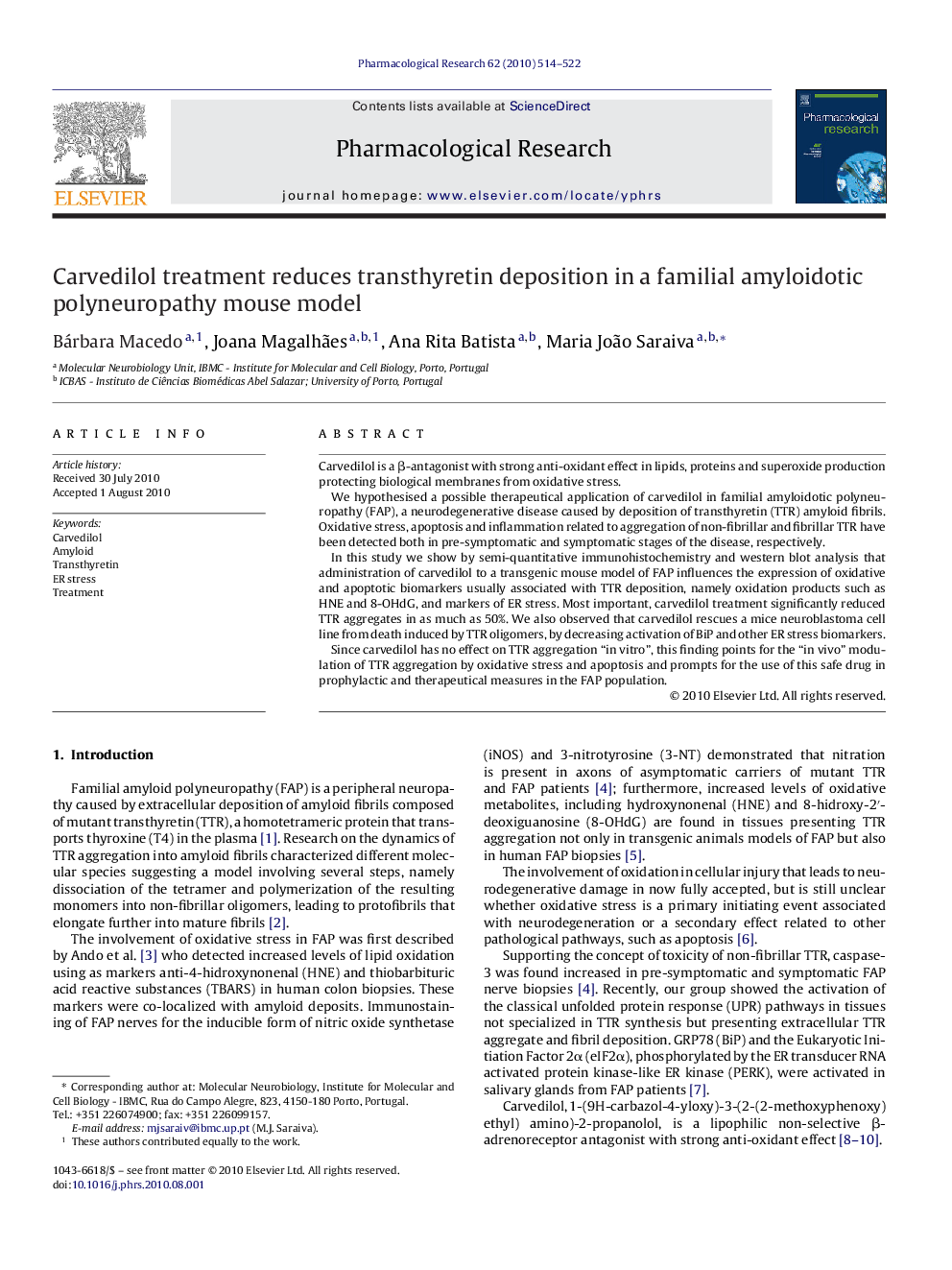| Article ID | Journal | Published Year | Pages | File Type |
|---|---|---|---|---|
| 2562782 | Pharmacological Research | 2010 | 9 Pages |
Carvedilol is a β-antagonist with strong anti-oxidant effect in lipids, proteins and superoxide production protecting biological membranes from oxidative stress.We hypothesised a possible therapeutical application of carvedilol in familial amyloidotic polyneuropathy (FAP), a neurodegenerative disease caused by deposition of transthyretin (TTR) amyloid fibrils. Oxidative stress, apoptosis and inflammation related to aggregation of non-fibrillar and fibrillar TTR have been detected both in pre-symptomatic and symptomatic stages of the disease, respectively.In this study we show by semi-quantitative immunohistochemistry and western blot analysis that administration of carvedilol to a transgenic mouse model of FAP influences the expression of oxidative and apoptotic biomarkers usually associated with TTR deposition, namely oxidation products such as HNE and 8-OHdG, and markers of ER stress. Most important, carvedilol treatment significantly reduced TTR aggregates in as much as 50%. We also observed that carvedilol rescues a mice neuroblastoma cell line from death induced by TTR oligomers, by decreasing activation of BiP and other ER stress biomarkers.Since carvedilol has no effect on TTR aggregation “in vitro”, this finding points for the “in vivo” modulation of TTR aggregation by oxidative stress and apoptosis and prompts for the use of this safe drug in prophylactic and therapeutical measures in the FAP population.
Graphical abstractCarvedilol modulates TTR aggregation “in vitro” and “in vivo” by decreasing ER stress.Figure optionsDownload full-size imageDownload as PowerPoint slide
